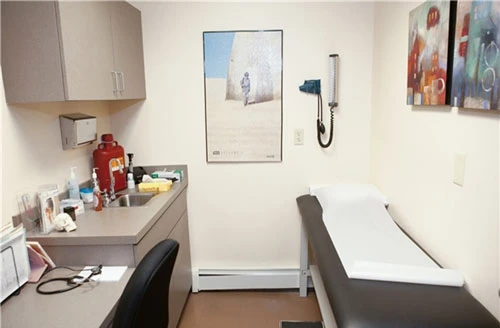 Do you know that tingling sensation in your throat? The watery eyes and constant sneezing? If you're nodding, you've likely got a case of allergies. But who should you seek help from in Marlton, NJ? You may wonder if an allergist or immunologist will be your best bet. The answer to that question will depend on your symptoms and medical history.
Do you know that tingling sensation in your throat? The watery eyes and constant sneezing? If you're nodding, you've likely got a case of allergies. But who should you seek help from in Marlton, NJ? You may wonder if an allergist or immunologist will be your best bet. The answer to that question will depend on your symptoms and medical history.
When it comes to treating allergies, the allergist is the go-to doctor. Allergists are medical experts specially trained in diagnosing, treating, and managing allergies, asthma, and immunological disorders. Allergists undergo extensive training to earn their stripes. They first complete a residency in internal medicine or pediatrics and then embark on a two or three-year fellowship in allergy and immunology. This preparation equips them with the necessary tools for various allergic and immunologic conditions.
Before visiting an allergist in Marlton, NJ, it's essential to understand and recognize allergy symptoms. These may include:
Allergists specialize in pinpointing the exact cause of your allergy. They employ a range of diagnostic tests like skin tests, blood tests, and challenge tests. Understanding the underlying reason for your allergic reactions allows for proper treatment, reducing the impact of symptoms on your daily life.
The answer to this question mainly depends on the individual and the severity of their symptoms. However, given the training and expertise of an allergist, they are typically the most suited to handle and treat a variety of allergies.
An allergist can provide comprehensive allergy care, including:
While allergists and immunologists share many similarities, some differences warrant attention. Specifically, while all allergists are immunologists, not all immunologists are allergists. An immunologist might be your best choice if you have a condition involving your immune system, like primary immunodeficiency or autoimmune diseases. Their understanding of the body's defensive mechanisms makes them the perfect consultants for conditions related to the immune system.
Immunologists deal with issues such as:
At their core, allergists and immunologists both deal with the immune system. However, they differ in the diseases they primarily handle and their treatment approach.
Allergists primarily manage diseases that occur when the immune system overreacts to harmless substances like pollen or food. They are the experts in diagnosing and treating asthma, allergic rhinitis, food allergies, eczema, and more.
Immunologists mainly focus on diseases that occur when the immune system underreacts or attacks the body's cells. They handle conditions like immunodeficiency disorders and autoimmune diseases.
When faced with allergy symptoms, your best bet for comprehensive treatment in Marlton, NJ is an allergist. They are the most equipped to handle various allergy conditions thanks to their specialized training and understanding of the immune system's overreactions. However, remember that the landscape of immunology is broad. If your condition involves your immune system underreacting or attacking your body's cells, it might be wise to consult an immunologist. Ultimately, understanding the distinctions between these two specialists can guide you to the appropriate help, offering you relief and a better quality of life.



